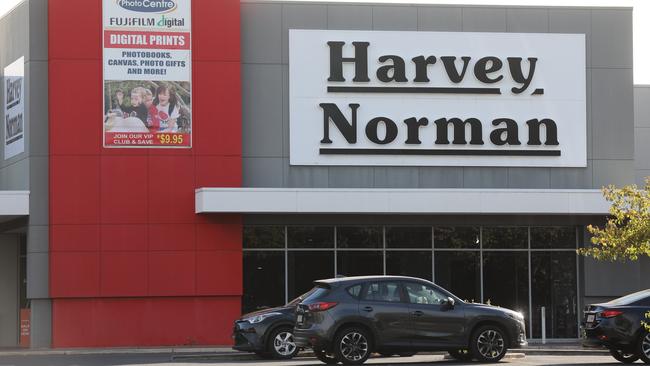UBS survey reveals ‘turning point’ in consumer spending, with wealthier Australians upbeat while poorer are ‘squeezed’
A UBS survey says the tight economy shines favourably on higher-income groups due to wage gains and asset ownership, while those on lower incomes are struggling.
A gulf between the ‘haves and have nots’ is widening, with wealthier Australians upbeat about the economic outlook while those on lower incomes are being “squeezed” as the rising cost of living and aggressive interest rate hikes bite
A new consumer spending survey from investment bank UBS has revealed a “turning point” during the first quarter of this year, revealing the “largest moderation in years”.
UBS strategist Richard Schellbach said the pain wasn’t being shared equally, with the rich remaining positive while low income earners were “struggling and showing a deteriorating financial outlook”.
“There is a widening gap between high-income versus lower-income earners,” he said.
“High income earners (those on more than $120,000 a year) remain most optimistic on spending, income growth, savings, home purchases, home renovations, travel and vehicle spending. Middle-income earners have joined lower-income earners in revealing a significant increase in cost-of-living pressures.”
And Mr Schellbach said those on lower incomes, earning less than $48,000 a year, were “outright negative on their financial outlook”.
“(The survey) results show low-income earners expect their income to contract over the coming 12 months, while their expectations on savings remain at their most negative on record.”
According to the survey – which included about 1000 adult Australians across all age groups and income brackets – more than 40 per cent said their living costs had increased significantly while 15 per cent said they had experienced no change while less than 5 per cent said they weren’t under any pressure.
Mr Schellbach said “two-speed consumption patterns” were “a product of inflation winners versus losers”.
“Cost of living pressures are forcing consumers to spend more on essentials: with food, fuel, rent, utility and healthcare costs impacting most – which disproportionately hurts lower-income earners,” he said.
“By contrast, the tight economy shines favourably on higher-income groups due to the wage gains they are experiencing and ownership of assets.”
It comes as cost of living and interest rate rises have sparked the fifth consecutive increase in Australians’ total credit card debt, with more families starting to “crack under the pressure” and turn to the plastic to make ends meet.
Total credit card bills attracting interest charges surged by $270m to $17.75bn in February – the highest level since August 2021, which was in the middle of the Covid pandemic – according to data released by the RBA this week.

The RBA halted its most aggressive series of interest rate hikes this month to “assess the impact” of the blitz, which has pushed the cash rate from 0.1 per cent last May to 3.6 per cent last month.
“Higher income groups are possibly looking through this cycle and now see the fact that we are at or near the end of the tightening cycle that the RBA has been pushing through the market and since the middle of last year,” Mr Schellbach said.
“They’re somewhat relieved that ‘you know, okay, well, you know, we’ve 200 or so basis points of interest rate hikes and, ultimately, the economy’s still strong, the property market still strong and I think we’ll get through this’.
“Their motivation in some of the key areas such as property purchases, new vehicle purchases, have increased and all hit new highs. So it really is a story where the overall positive response in this survey has been driven by the high incomes and from an equity market point of view, that becomes a little bit difficult because we can’t necessarily separate out equity investments perfectly into stocks exposed to high and low income earners.”
Companies with more exposure to high income earners, according to UBS, include ASG, Breville, Netwealth, Qantas, Scentre, Select Harvest and Treasury Wine Estate. UBS was also upbeat on Wesfarmers, which it said would benefit from consumers trading down.
Meanwhile, those with more exposure to lower incomes included Collins Foods, Super Retail Group, Harvey Norman and JB Hi-Fi.
“Big ticket item purchases are clearly on the backfoot. That’s one pretty easy way for the consumer who’s under pressure to allow themselves some breathing space,” Mr Schellbach said.
“In other words, they can continue to consume in many other categories that are pulling back on the big ticket item purchases, that allows the other categories that they purchase on to sort of be sustained. So that would sort of shine unfavourably on stocks such as Harvey Norman.”







To join the conversation, please log in. Don't have an account? Register
Join the conversation, you are commenting as Logout